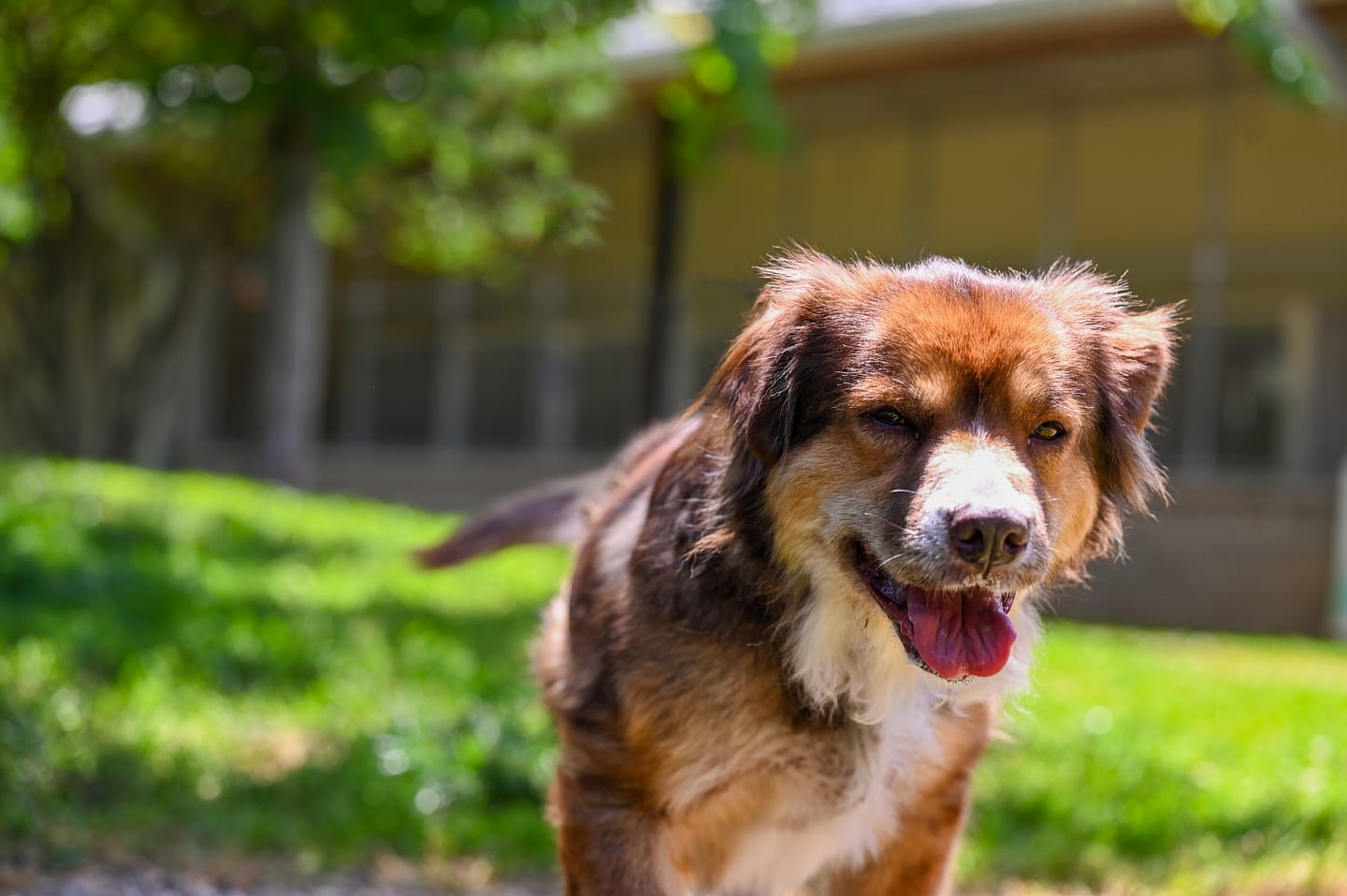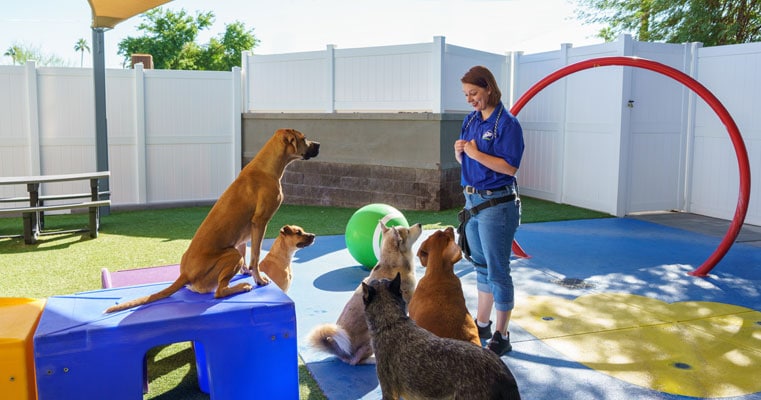Common Behavioral Issues and Their Solutions in Dog Training
Common Behavioral Issues and Their Solutions in Dog Training
Blog Article
Vital Tips for Successful Dog Training: An Overview for Pet Owners
Reliable pet dog training is a diverse process that calls for a critical technique customized to both the pet's temperament and the owner's goals. Key elements such as developing regular commands, employing positive support, and facilitating early socializing play vital duties in promoting a well-adjusted canine friend. Numerous pet owners experience challenges that can hinder development, leading to stress and uncertainty. Comprehending exactly how to browse these barriers can significantly improve the training experience, eventually transforming the connection between owner and pet. What are the necessary methods that can be employed to guarantee success in this undertaking?
Comprehending Dog Behavior
Comprehending dog actions is vital for efficient training and cultivating an unified connection between canines and their owners. dog training. Canines connect mainly through body language, vocalizations, and activities, making it important for proprietors to interpret these signals properly.

Socialization plays a substantial role in pet dog behavior; exposure to different settings, people, and various other animals can considerably affect a dog's temperament. Variables such as type attributes and individual temperament ought to direct training techniques, as some types might have details behavior attributes that require tailored methods. By comprehending these elements, proprietors can create a supportive atmosphere that motivates positive actions, resulting in successful training outcomes and a deeper bond with their family pets.
Developing Consistent Commands
Effective interaction with your canine begins with developing regular commands. This foundational component of training is crucial for promoting understanding between you and your pet. Uniformity in the commands you use ensures that your canine can accurately link certain words or phrases with the desired behaviors.
When picking commands, select clear, distinct words that are very easy to differentiate and say from one an additional. Prevent making use of similar-sounding commands that may perplex your pet. For instance, using "sit" and "stay" is ideal, however "rest" and "struck" might cause misconceptions.
Furthermore, maintain the exact same tone and quantity for each and every command. Pet dogs are sensitive to singing signs, so differing your tone can create confusion.
It is similarly essential to ensure that all member of the family are on the very same page concerning the commands made use of. A united front in command usage will certainly avoid blended signals and reinforce the knowing procedure.
Favorable Support Strategies
The power of favorable reinforcement in canine training depends on its capacity to encourage wanted behaviors with rewards and praise. This method is based in the concept that behaviors followed by positive end results are more likely to be duplicated. By including favorable reinforcement right into your training program, you can successfully shape your pet dog's behavior in a constructive way.
To implement favorable support, it's necessary to recognize what motivates your pet dog, whether it be deals with, playthings, or verbal appreciation. When your pet dog executes a preferred activity, such as resting on command, immediately award them with a treat or love. This organization in between the command and the positive outcome strengthens their understanding.
It's important to timing the rewards correctly; delivering the support within seconds of the desired behavior assists your pet dog make the connection (dog training). Furthermore, consistency is key-- guarantee that all member of the family use the exact same commands and benefit systems to avoid confusion

Progressively, you can decrease the frequency of deals with as your dog discovers the actions, transitioning to commend or intermittent benefits. This approach not just fosters a strong bond between you and your canine however additionally advertises a positive knowing atmosphere, making training a delightful experience for both.
Socialization and Interaction
Regularly subjecting your pet dog to a selection of atmospheres, individuals, and various other animals is essential for their social advancement. Socializing needs to start early, ideally during the important home window of 3 to 14 weeks, when pups are most receptive to new experiences. Older pets can additionally profit from continuous socialization initiatives.
Present your pet to various setups, such as parks, pet-friendly stores, and urban locations. This exposure aids them adjust to numerous stimulations, minimizing anxiety and worry reactions. Encourage favorable communications with other dogs and people, ensuring that these have a peek at these guys experiences are risk-free and controlled to promote confidence.
Use structured playdates with courteous dogs, as this can boost your canine's social abilities and show them suitable behavior. Obedience classes and training sessions additionally offer superb chances for socialization, allowing your pet to communicate with others in a monitored environment.
Screen your dog's body movement throughout communications, as this will aid you evaluate their convenience degree. Progressively enhance direct exposure to more difficult scenarios while try this out making certain that each experience is favorable. A well-socialized pet is much more most likely to exhibit balanced actions, making them a happiness to have in any kind of setting.
Attending To Usual Training Challenges
Every canine proprietor will come across training challenges at some point, despite their canine's age or socializing degree. Identifying typical problems such as stubbornness, interruptions, and terror can help in developing efficient approaches for renovation.

Interruptions during training sessions can derail emphasis. To combat this, start training in a quiet environment with minimal stimuli. Progressively present distractions as the dog becomes more competent in commands. Short, frequent training sessions are also efficient in maintaining attention.
Fearfulness can prevent a pet's discovering process. Gradual desensitization to the resource of concern, coupled with positive support, can aid ease stress and anxiety. Patience is crucial; never ever require a dog right into a circumstance that creates distress, as this might intensify the concern.
Inevitably, understanding and addressing these usual difficulties with a structured strategy will certainly foster an extra efficient training experience, strengthening the bond in between canine and proprietor while promoting reliable discovering.
Conclusion
In recap, successful pet training counts on an extensive understanding of canine actions, the establishment of regular commands, and the application of positive reinforcement techniques. Socializing plays an important function in developing well-adjusted pet dogs, while dealing with usual training challenges calls for patience and versatility. By implementing these necessary strategies, family pet proprietors can promote a solid bond with their dogs and promote preferable behaviors, eventually bring about a harmonious connection in between human beings and their canine companions.
Comprehending pet behavior is vital for reliable training and fostering a harmonious connection in between pooches and their owners.Socialization plays a substantial duty in dog habits; direct exposure to numerous environments, people, and various other animals can substantially influence a dog's temperament.The power of positive reinforcement in pet dog training exists in its capacity to urge desired behaviors through benefits and check that praise. By integrating favorable support right into your training routine, you can effectively shape your canine's habits in a positive fashion.
In summary, successful dog training depends on a detailed understanding of canine behavior, the establishment of regular commands, and the application of positive support methods.
Report this page